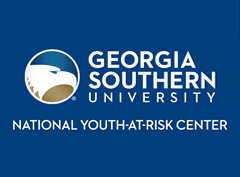Social skills instruction to support positive peer-peer and peer-teacher interactions
Location
Garden Terrace
Focused Area
Improving School Climate for Youth-At-Risk
Relevance to Focused Area
Fostering positive peer-to-peer and peer-to-teacher interactions can decrease challenging behaviors and improve academic outcomes (Clees & Greene, 2014; Kauffman, and Landrum 2009). Such social skills are exemplified by "following-teacher-directions," "making compliments," and "sharing." Teaching appropriate social skills has also been shown to decrease school violence and improve the overall school climate to support learning (Walker, Ramsey and gresham, 2004).
Primary Strand
Social & Emotional Skills
Relevance to Primary Strand
As noted, increased social competence and improved peer-to-peer and teacher-to-peer interactions in school settings have been linked to improved academic outcomes (Clinton & Clees, in press; Kauffman and Landrum, 2009) and cooperative activities (Clees and greene, 2014). By increasing teachers' understanding of the factors that promote generalization (Stokes and Osnes,1989) within a social skills instructional model, school climate and individual student success can be enhanced. The social skills model to be presented is research-based and can be modified to fit varying skills and settings to promote generalization.
Brief Program Description
This presentation will describe a research-based social skills instructional (SSI) model to promote social interaction and school success. Attendees will be able to describe the steps for designing and delivering SSI via a pragmatic example. This presentation will be of interest to teachers and clinical personnel, as well as administrators.
Summary
This presentation will describe a research-based social skills instruction (SSI) model to promote social skills for students with varying disabilities or who are at-risk. The presentation will provide a conceptual basis for the model, and will stress pragmatic design for teachers/school/clinical personnel, as well as parents. A pragmatic example from the presenters' research will be presented to exemplify the model. Upon completion of the presentation, attendees will be able to:
- Design a social skills approach to assist students to follow teacher requests and interact in a prosocial manner with peers (give compliments, share)
- Describe activities to promote the generalization of social skills across settings and individuals
Evidence
This evidence has been given elsewhere in this proposal, but generally it relies on the work of Gresham and Walker, both of whom have framed a conceptual basis for social some skills instruction. Walker has also developed social skills curricula on which components of the model are based. The model to be presented als relies heavily on the research by Stokes and Osnes related to factors that promote generalization. The model to be presented is evidence-based (peer reviewed research by the 1st presenter and colleagues in two journal articles; identifying information omitted).
Format
Poster Presentation
Biographical Sketch
Tom J. Clees
Dr. Clees has is an Associate Professor of Special Education at the University of Georgia. He has over 30 years of applied experience in clinical and University teaching. His areas of expertise include applied behavior analysis, self-management, social skills and transition.
Todd Stephens
Dr. Stephens is a Professor of Special Education at the University of Wisconsin- Eau Claire. He has over thirty years of experience working to support individuals with learning and behavioral challenges in the community and schools, including teaching in schools and University settings. His areas of expertise include applied behavior analysis, behavioral disorders and intellectual disability.
Start Date
10-26-2017 4:45 PM
End Date
10-26-2017 5:45 PM
Recommended Citation
Clees, Tom, "Social skills instruction to support positive peer-peer and peer-teacher interactions" (2017). National Youth-At-Risk Conference, West (2015-2017). 12.
https://digitalcommons.georgiasouthern.edu/nyar_vegas/2017/2017/12
Social skills instruction to support positive peer-peer and peer-teacher interactions
Garden Terrace
This presentation will describe a research-based social skills instructional (SSI) model to promote social interaction and school success. Attendees will be able to describe the steps for designing and delivering SSI via a pragmatic example. This presentation will be of interest to teachers and clinical personnel, as well as administrators.
